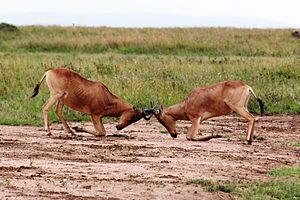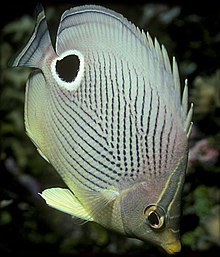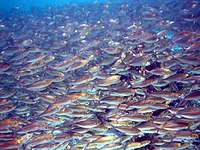Portal:Ecology
| |
|
|
Ecology
|
|
Ecology (from Ancient Greek οἶκος (oîkos) 'house', and -λογία (-logía) 'study of') is the natural science of the relationships among living organisms, including humans, and their physical environment. Ecology considers organisms at the individual, population, community, ecosystem, and biosphere levels. Ecology overlaps with the closely related sciences of biogeography, evolutionary biology, genetics, ethology, and natural history. Ecology is a branch of biology, and is the study of abundance, biomass, and distribution of organisms in the context of the environment. It encompasses life processes, interactions, and adaptations; movement of materials and energy through living communities; successional development of ecosystems; cooperation, competition, and predation within and between species; and patterns of biodiversity and its effect on ecosystem processes. Ecology has practical applications in conservation biology, wetland management, natural resource management (agroecology, agriculture, forestry, agroforestry, fisheries, mining, tourism), urban planning (urban ecology), community health, economics, basic and applied science, and human social interaction (human ecology). The word ecology (German: Ökologie) was coined in 1866 by the German scientist Ernst Haeckel. The science of ecology as we know it today began with a group of American botanists in the 1890s. Evolutionary concepts relating to adaptation and natural selection are cornerstones of modern ecological theory. Ecosystems are dynamically interacting systems of organisms, the communities they make up, and the non-living (abiotic) components of their environment. Ecosystem processes, such as primary production, nutrient cycling, and niche construction, regulate the flux of energy and matter through an environment. Ecosystems have biophysical feedback mechanisms that moderate processes acting on living (biotic) and abiotic components of the planet. Ecosystems sustain life-supporting functions and provide ecosystem services like biomass production (food, fuel, fiber, and medicine), the regulation of climate, global biogeochemical cycles, water filtration, soil formation, erosion control, flood protection, and many other natural features of scientific, historical, economic, or intrinsic value. (Full article...) Selected article - Intraspecific competition is an interaction in population ecology, whereby members of the same species compete for limited resources. This leads to a reduction in fitness for both individuals, but the more fit individual survives and is able to reproduce. By contrast, interspecific competition occurs when members of different species compete for a shared resource. Members of the same species have rather similar requirements for resources, whereas different species have a smaller contested resource overlap, resulting in intraspecific competition generally being a stronger force than interspecific competition. Individuals can compete for food, water, space, light, mates, or any other resource which is required for survival or reproduction. The resource must be limited for competition to occur; if every member of the species can obtain a sufficient amount of every resource then individuals do not compete and the population grows exponentially. Prolonged exponential growth is rare in nature because resources are finite and so not every individual in a population can survive, leading to intraspecific competition for the scarce resources. (Full article...)Selected image -Wasp mimicry - A and B show real wasps; the rest are mimics: three hoverflies and one beetle. Mimicry is part of the evolutionary process of adaptation.
General imagesThe following are images from various ecology-related articles on Wikipedia.
Related WikiProjectsThings you can do
Entries here consist of Good and Featured articles, which meet a core set of high editorial standards.
 In zoology, automimicry, Browerian mimicry, or intraspecific mimicry, is a form of mimicry in which the same species of animal is imitated. There are two different forms. In one form, first described by Lincoln Brower in 1967, weakly-defended members of a species with warning coloration are parasitic on more strongly-defended members of their species, mimicking them to provide the negative reinforcement learning required for warning signals to function. The mechanism, analogous to Batesian mimicry, is found in insects such as the monarch butterfly. (Full article...)Selected biography -Aldo Leopold (January 11, 1887 – April 21, 1948) was an American writer, philosopher, naturalist, scientist, ecologist, forester, conservationist, and environmentalist. He was a professor at the University of Wisconsin and is best known for his book A Sand County Almanac (1949), which has been translated into fourteen languages and has sold more than two million copies. Leopold was influential in the development of modern environmental ethics and in the movement for wilderness conservation. His ethics of nature and wildlife preservation had a profound impact on the environmental movement, with his ecocentric or holistic ethics regarding land. He emphasized biodiversity and ecology and was a founder of the science of wildlife management. (Full article...)Did you know (auto-generated)
Selected quote -
Ecology news
Additional News Highlights
Selected publication -The Journal of Wildlife Management is a peer-reviewed scientific journal devoted to the ecology of non-domesticated animal species. It is published by The Wildlife Society. (Full article...) Related portalsMore did you know -Related articlesAssociated WikimediaThe following Wikimedia Foundation sister projects provide more on this subject:
Web resources
Discover Wikipedia using portals |

















































